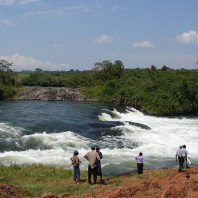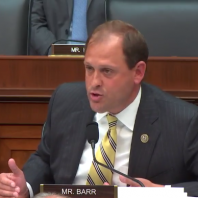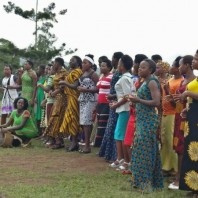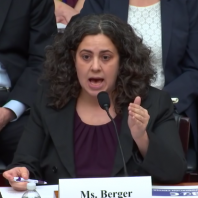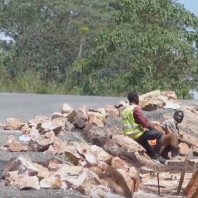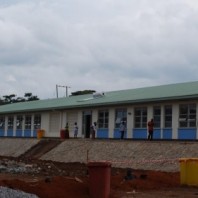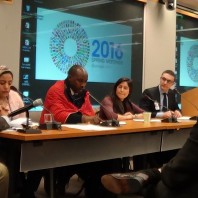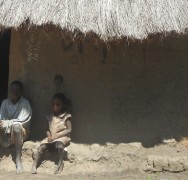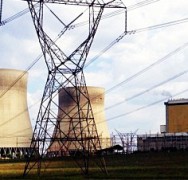Tomorrow, the World Bank Board of Directors will decide whether to approve an investigation into a complaint related to the Bujagali Dam in Uganda. The complaint alleges that Management failed to take appropriate actions to protect an offset area it agreed to protect through a written agreement with the government of Uganda, in violation of …

Despite the stated commitments of the World Bank and other donors to poverty reduction and sustainable development in Africa, the number of Africans living in poverty is increasing. Today, over half of the continent’s 800 million people subsist on less than one dollar a day – nearly twice as many as a quarter century ago – and 34 of the world’s 48 poorest countries are found in Africa.
The severity of poverty on the continent continues to pose an enormous challenge to African countries and contributes to a cycle of dependence on finances provided by the World Bank Group (WBG), the African Development Bank, and other international financial institutions (IFIs). The 48 countries of sub-Saharan Africa together receive the largest share of World Bank’s International Development Association (IDA) lending of any region in the world, and the International Finance Corporation (IFC) is the largest single source of financing for private sector investment on the continent. External aid from the WBG and other donors has contributed to unsustainable debt levels facing many African countries today. At the same time, the conditions for accessing external aid often require economic reforms that cater to companies over communities.
In response to the questionable track record of IFI support for investment in natural resources and energy sector development on the continent, BIC’s Africa Program focuses primarily on issues of transparency, accountability and the social, environmental and economic impacts of these activities as they affect the poor.
Taking advantage of its location in Washington, D.C., BIC’s Africa Program engages directly with the World Bank Group headquarters and the US Government to help gather information for BIC’s partners on the ground in sub-Saharan Africa and to ensure that their views are heard by decision-makers here.
International financial institutions active in the region
- World Bank
- International Finance Corporation (IFC)
- Multilateral Investment Guarantee Agency (MIGA)
- African Development Bank (AfDB)
- International Monetary Fund (IMF)
- European Investment Bank (EIB)
The World Bank Group plays a significant role in shaping policy and directing investments in Africa through its functions as “lender,” “knowledge broker,” and “gatekeeper” to development finance. In 2011, the World Bank provided approximately $7 billion in loans and grants to Africa, in the form of structural adjustment (now called “development policy”) lending support, direct investments, and technical assistance operations. The enormous amount of research produced by the Bank frames the policy debate and sets the development agenda in many African countries. Finally, the Bank’s own financing decisions and assessments of country policies provide a signal to other lenders, influencing a country’s access to funding from IFIs, donors and commercial banks.
While it has historically operated in the shadows of the World Bank, the African Development Bank (AfDB) is becoming an increasingly prominent lender on the continent, taking a lead in supporting infrastructure investments and regional initiatives in Africa. However, there remains relatively little public awareness about the activities of the AfDB and their impacts on the continent’s people and environment.
In recent years, the private sector lending arms of the World Bank Group – the IFC and MIGA – have become more active in African countries, with their portfolios shifting toward “frontier markets” in low income and post-conflict countries where investors are venturing, often in search of commodities fetching high prices on the international market.
The House Financial Services Committee passed the World Bank Accountability Act of 2017 today, authorizing U.S. participation in IDA, the World Bank’s fund for the poorest countries. The bill funds IDA at the level recently requested by the Trump administration, but conditions that funding on whether the Bank adopts certain reforms, which the bill’s sponsor, …
World Bank Works to Address GBV related Ramifications of Uganda Transport Sector Development Project
In response to the harm caused by the World Bank funded Uganda Transport Sector Development Project (UTSDP), including the sexual exploitation of teenage girls, BIC has conducted advocacy to encourage that the Bank takes steps to provide redress to the community and to prevent such harm from occurring in future projects. BIC has worked with …
On March 22, BIC’s Elana Berger testified before the House Financial Services Committee subcommittee on Monetary Policy and Trade. Berger’s testimony at the hearing entitled “Examining Results and Accountability at the World Bank,” focused on the impacts of the Uganda Transport Sector Development Project (TSDP) and the significant internal reforms at the Bank resulting from …
March 2017 Elana Berger, BIC’s Social Inclusion and Accountability Manager, will testify before the Monetary Policy and Trade Subcommittee of the House Financial Services Committee this Wednesday at a hearing titled, “Examining Results and Accountability at the World Bank.” Elana’s testimony will focus on the Uganda Transport Sector Development Project (TSDP), which led to devastating …
BIC Rebuttal to the World Bank’s Response to BIC’s case studies on Development Policy Operations in Peru, Egypt, Mozambique, and Indonesia March 2017 In January 2017, the Bank Information Center (BIC) along with international and local partner organizations published a report and four case studies on seven World Bank policy lending investments in Peru, Egypt, …
A global group of non-governmental organizations today called on the World Bank, European Investment Bank, Japan International Cooperation Agency, German Development Bank- KFW, French Agency for Development, and other international financial institutions involved with the Olkaria I, IV, and V geothermal projects in Kenya to take immediate action and demand that the project promoter, …
On November 22 the World Bank Board of Directors approved a Management Action Plan intended to address the Inspection Panel’s investigation of the Uganda Transport Sector Development Project (TSDP), which has been of long-term concern for BIC’s child rights program. Commitments in the Action Plan include strengthening the capacity of local governments in Uganda to …
The National Union of Disabled Persons of Uganda (NUDIPU) assessed the impact of the World Bank funded Uganda Health systems strengthening project on persons with disabilities (PWDs): A case study of Itojo and Kiryadongo Hospitals. The data was analyzed with regard to project awareness, implementation and effect on the lives of PWDs. The study was …
The World Bank has committed to 100% beneficiary feedback in its projects and aims through its corporate strategy to empower citizens to participate in the development process. At the same time, since 2012 over 60 countries have passed legislation restricting civil society’s ability to freely operate and many communities face intimidation or criminalization when raising …
Archived Projects
BIC has worked on these projects in the past, but is no longer actively monitoring them.
Official Webpages
World Bank’s Africa WebpageIFC’s Africa Webpage
World Bank Africa Region Strategy
African Development Bank Website
News Sources
www.allafrica.com – AllAfrica.Com provides comprehensive news coverage of current affairs and development issues in AfricaPambazuka News – A weekly publication concerning social justice issues in Africa

